Blog
11+ Interesting Facts About Brazil
- Thursday October 8th, 2020
- Posted by: Amanda Ennes
- Category: Brazil
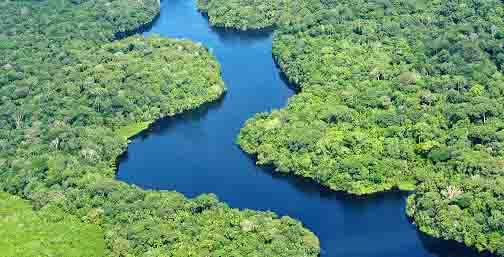
There are numerous things to discuss about Brazil. As a huge country with enormous diversity, there is something interesting in every aspect of the country. From the beginning of Brazilian history to current times, from sports to food, let’s check some interesting facts about Brazil.
Table of Contents
ToggleDiscovery
The Portuguese people first arrived in Brazil in April 1500, in a fleet commanded by Pedro Álvares Cabral. Indigenous peoples divided into several tribes used to live in the land back then. In 1532, the Portuguese founded the first settlement in Brazil. Colonization effectively began in 1534. Hence, Brazil was a Portuguese colony for over 300 years, gaining its independence in 1822.
Origin of the name
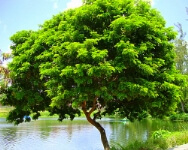 Brazil’s official name is República Federativa do Brasil (Federative Republic of Brazil). The origin of the name Brazil comes from a tree called brazilwood (Pau-Brasil in Portuguese). Europeans used the brazilwood as a deep red dye, highly valued by the textile industry. Common in the new land, the brazilwood was the earliest commercially exploited product from Brazil.
Brazil’s official name is República Federativa do Brasil (Federative Republic of Brazil). The origin of the name Brazil comes from a tree called brazilwood (Pau-Brasil in Portuguese). Europeans used the brazilwood as a deep red dye, highly valued by the textile industry. Common in the new land, the brazilwood was the earliest commercially exploited product from Brazil.
If you want to learn more interesting facts about the origin of the name Brazil and the meanings behind the Brazilian flag, check out our IGTV channel and watch the videos teacher Lennon has made about it.
Area and population
Brazil is the fifth-largest country in the world by land area, with over 8.5 million square kilometers. It is also the sixth-largest by population, having over 210 million people. The largest cities in Brazil are São Paulo, Rio de Janeiro, Brasília, Salvador, and Fortaleza, respectively.
Capitals
The first capital of Brazil was Salvador, between 1549 e 1763. After that, the capital was transferred to Rio de Janeiro, which held the title until 1960. One of the most interesting facts about Brazil is that Rio de Janeiro was also the capital of Portugal once. With the French invasions in Portugal in the 19th century, the royal family of Portugal settled in Brazil, thus moving the capital of the kingdom to Rio de Janeiro.
In 1956, President Juscelino Kubitschek, architect Oscar Niemeyer, and urbanist Lúcio Costa started to plan what would be Brasília. Eventually, in 1960, Brasília became the current capital of the country. Brasília was entirely planned and built in less than 4 years.
Regions of Brazil
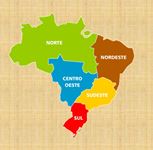 Brazil is geopolitically divided into five regions, defined by the physical characteristics of its territory. The North Region is the largest in area. It is composed of seven states, having Manaus as its largest city. The Northeast Region has nine states, with Salvador being the most populous city. The Central-West Region of Brazil is the only one with no coastline, composed of three states plus the Federal District. The Southeast Region is the largest in population, with four states, including the Rio de Janeiro–São Paulo megalopolis. Finally, the South Region is the smallest in area, comprising the states of Paraná, Santa Catarina, and Rio Grande do Sul.
Brazil is geopolitically divided into five regions, defined by the physical characteristics of its territory. The North Region is the largest in area. It is composed of seven states, having Manaus as its largest city. The Northeast Region has nine states, with Salvador being the most populous city. The Central-West Region of Brazil is the only one with no coastline, composed of three states plus the Federal District. The Southeast Region is the largest in population, with four states, including the Rio de Janeiro–São Paulo megalopolis. Finally, the South Region is the smallest in area, comprising the states of Paraná, Santa Catarina, and Rio Grande do Sul.
Japanese community
Brazil is home to the largest Japanese community outside Japan. Around 1908, tons of Japanese immigrants came to Brazil looking for better jobs. Today, Brazil has over 1.5 million citizens of Japanese origin living in the country. In São Paulo, the Liberdade neighborhood alone is home to about 400,000 Japanese descendants. The neighborhood is traditionally Japanese, from the architecture and buildings to the shops and signs.
Coffee
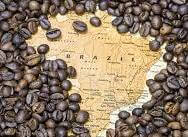 Brazil is the largest coffee producer in the world, responsible for processing about a third of all coffee worldwide. The state of Minas Gerais produces most of this coffee.
Brazil is the largest coffee producer in the world, responsible for processing about a third of all coffee worldwide. The state of Minas Gerais produces most of this coffee.
Brazilians love their coffee black and very strong. That is why they usually drink a small amount of it per serving. Coffee is a big part of the Brazilian culture, and it is even common for people to have a cup of coffee at night after diner.
National dish
Feijoada is the national dish of Brazil. It is a black bean stew with pork cuts, including pork ears, feet, and tail, bacon, pork ribs, and a variety of sausages. It is usually served with rice, collard greens, farofa, and sliced oranges.
FIFA World Cup
 Football is by far the most popular sport in Brazil. Brazil is the only country that has competed in all editions of the FIFA World Cup since the first one in 1930. The national team of Brazil has also won the most FIFA World Cup titles of all time. They are the only ones to win this tournament five times, back in 1958, 1962, 1970, 1994 and, 2002. The country has also hosted two editions of the FIFA World Cup, in 1950 and 2014.
Football is by far the most popular sport in Brazil. Brazil is the only country that has competed in all editions of the FIFA World Cup since the first one in 1930. The national team of Brazil has also won the most FIFA World Cup titles of all time. They are the only ones to win this tournament five times, back in 1958, 1962, 1970, 1994 and, 2002. The country has also hosted two editions of the FIFA World Cup, in 1950 and 2014.
Read about the biggest football clubs in Brazil on our blog post The Top Brazilian Clubs: Understanding Brazilians’ Passion for Football.
World’s largest river
The Amazon River is the world’s largest river regarding the volume of water discharged. One-fifth of all freshwater on the planet flows through the rivers of the Amazon basin.
Biodiversity
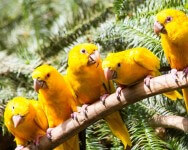 Brazil is the most biodiverse country on the planet, with more animal and plant species than any other country in the world. According to the Biodiversity Finance Initiative website, at least 103,870 animal species and 43,020 plant species are currently known in the country. The country also has 64 national parks and more than 200 conservation units.
Brazil is the most biodiverse country on the planet, with more animal and plant species than any other country in the world. According to the Biodiversity Finance Initiative website, at least 103,870 animal species and 43,020 plant species are currently known in the country. The country also has 64 national parks and more than 200 conservation units.
Read our blog post Fauna and Flora of Rio de Janeiro: Explore Rio’s Nature.
If you want to learn other interesting facts about Brazil, book your Portuguese classes with Caminhos Language Centre. At Caminhos, you will not only learn Brazilian Portuguese but also discover and understand the Brazilian culture and get inside details of life in Rio de Janeiro to become a true carioca yourself.


 Deutsch
Deutsch Français
Français Português
Português Español
Español

Ya’ll did good on this!
Gracias por la información me ayudó mucho.